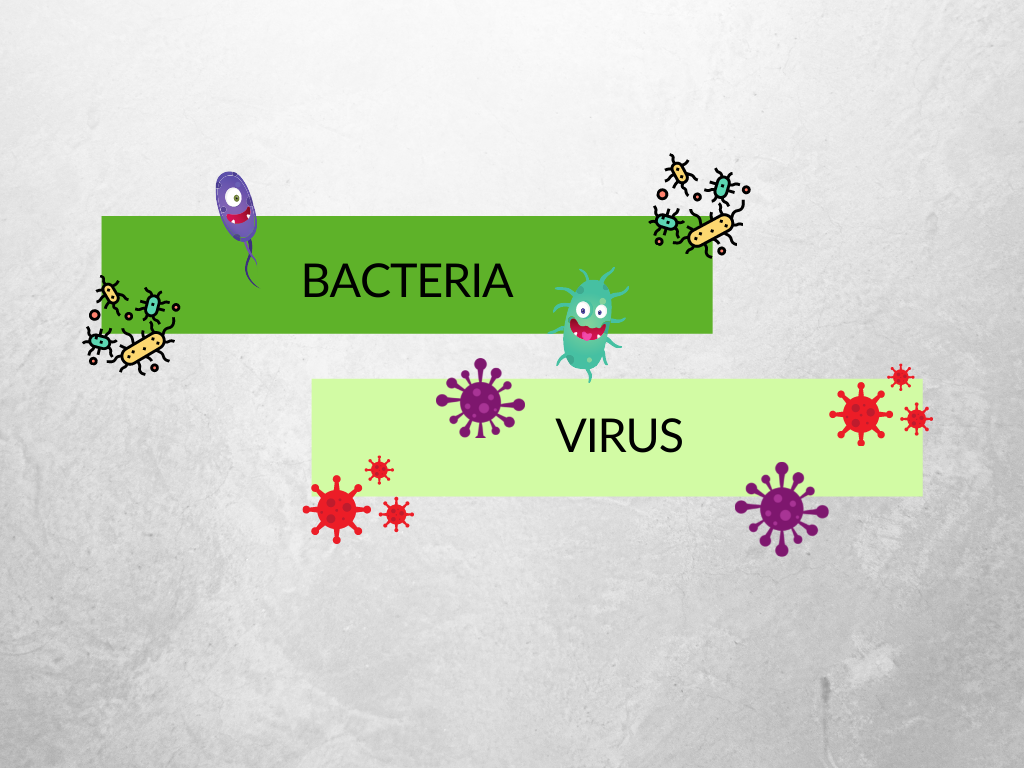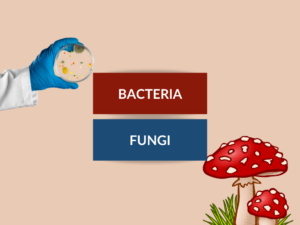The main biological difference between bacteria and virus is that bacteria are free-living cells that can live anywhere inside or outside a body, while viruses are non-living collections of molecules that do not require a host to survive.
What is Bacteria
Bacteria are prokaryotes—they are the smallest, simplest and most ancient cells, with free-floating genetic material. These microscopic single-celled organisms are often rod, spiral or spherical. There are two varieties of bacteria: Gram-negative and Gram-positive. The key difference is that the presence of an additional outer membrane in Gram-negative bacteria. It’s essentially an additional line of defence that produces it harder for antibiotics to penetrate, thus making Gram-negative bacteria harder to kill and more liable to developing resistance. Bacteria are abundant in soil, inhabiting plant root systems to produce services like nitrogen-fixing or acting as antifungal agents. Thermophilic (heat-loving) bacteria fix sulphur to supply sulphide and energy for photosynthesis in aquatic sediments or organically rich waters.
What is virus
Viruses are an assembly of various styles of molecules that contains genetic material (either a single- or double-stranded DNA or RNA) with a protein coat and sometimes a layer of fat too (an envelope). They can consider different shapes and sizes—spacecraft designs, spirals, cylinders and ball shapes. Viruses are surrounded by a layer of fat.
they are often more readily killed by simple handwashing because soap disrupts this fatty layer. Viruses can’t reproduce on their own (unlike bacteria) so that they aren’t considered ‘living’, but they will survive on surfaces for a varying level of your time.
Difference Between Bacteria and Virus
| Bacteria | Virus |
|---|---|
| Bacteria are living organisms | Viruses are not living organisms |
| Reproduction | |
| Bacteria don't need a host organism for reproduction | Viruses replicate only inside the host |
| Cells | |
| Bacteria is unicellular | Viruses don't have cells |
| Harmfulness | |
| Bacteria can be either beneficial or harmful | Viruses are usually harmful, but they be useful in genetic engineering |
| Infections | |
| Bacteria cause localized infections | Viruses cause systematic Infection |
| Prevention | |
| Infections caused by bacteria can be prevented by antibodies | Infections caused by virus have a vast spread and can be prevented by vaccines |
Conclusion
Hence We conclude the Difference Between Bacteria and virus as that Most viruses are smaller than the smallest bacteria: the largest of them is one-tenth the size of the smallest bacteria. Their genetic material is made up of RNA or DNA, and a protein coat on top. Viruses cannot survive without a host, unlike bacteria. Reproduction is only possible when they attach themselves to cells.
More Related Readings
Difference Between Hardware and Software
Difference Between IOS and Android




